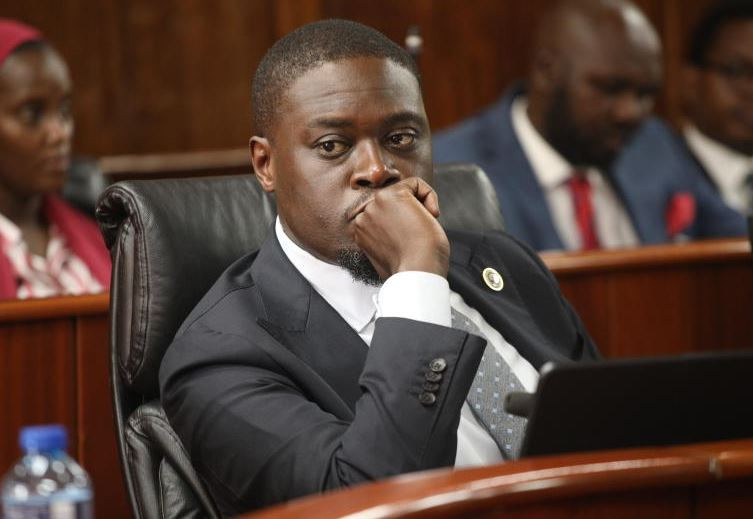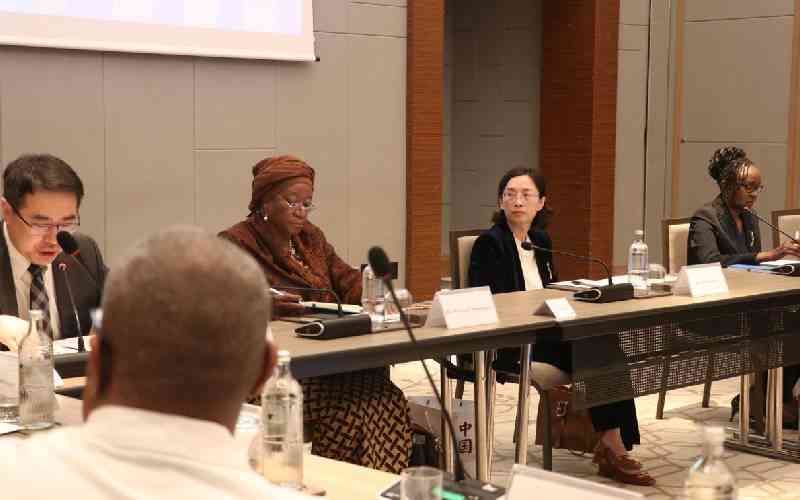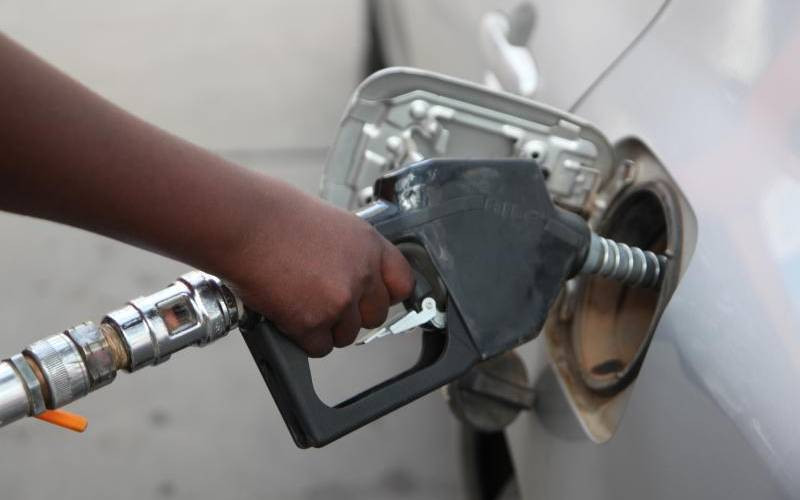
An estimated Sh180 billion is needed to fully regenerate Nairobi, Mathare, and Ngong rivers as the government increases efforts to clean the waterways.
Nairobi Governor Johnson Sakaja said that it will cost an average of Sh60 billion to restore each river to its original state explaining that the county could not raise the money on its own terming. This, he added, was the reason they are working with Nairobi Rivers Commission and national government departments.
Sakaja, who was before the Senate Lands Committee, defended the ongoing Nairobi Regeneration Programme stating that his administration was not responsible for last year’s demolitions along the riverbanks, which left several people homeless.
“I would like to inform the Senate that the demolitions were not done by us; they were carried out by the national government. My administration's declaration of special planning zones was simply an expression of intention after we consulted local communities,” said Sakaja.
The Governor was before the Senate Committee alongside the residents of Korogocho and the Nairobi Rivers Commission officials to respond to a petition by the residents over inhumane demolitions where he exonerated his administration from blame.
Sakaja pointed out that counties can only borrow up to five per cent of their revenue since they cannot raise the money on their own to clear the rivers, which is why they have to work with the National Government relevant departments.
While condemning inhumane demolitions, Sakaja reaffirmed his support for the regeneration programme, emphasising its benefits for residents and the economy stating that the exercise will protect those living along river banks and create thousands of jobs for the youth.
“We are committed to cleaning the city together with the national government, cleaning the rivers improves safety, sanitation, security and the environment, many have lost their lives due to floods, which is unacceptable, that is why we this exercise to be taken positively,” said Sakaja.
Sakaja promised to lead the residents to the relevant national government offices to ensure they are compensated since he would also like to see their interests being safeguarded even as efforts to clean the rivers in the city are intensified by the relevant agencies.
Nairobi Rivers Commission Chairperson Margaret Wanjiru confirmed that the demolitions were conducted by the national government stating that the commission’s role is the coordination of the various agencies tasked with rivers restoration.
“The Nairobi Regeneration Programme was launched to deal with pollution, poor drainage and unplanned settlements along the city’s riverbanks. It has already created hundreds of jobs through clean-up exercises, landscaping, waste management and infrastructure projects,” said Wanjiru.
Sakaja said the programme includes major infrastructure projects to transform Nairobi’s sanitation and drainage systems and that they are currently constructing a 50-kilometre sewer line that will serve the city for the next 50 years.
The Governor said that the programme is part of a broader urban renewal plan to make Nairobi cleaner, greener, and safer stating that this is not just about the environment; it is about restoring dignity, creating livelihoods and ensuring residents live in a modern, well-planned city.
Sakaja said that the key components of the programme include the construction of a 60-kilometre trunk sewer line along the Nairobi River Basin and the modernization of the Kariobangi Wastewater Treatment Plant, which will increase processing capacity from 60,000 to 90,000 cubic metres per day.
The Governor told Senators that the city administration is also developing 27.2 kilometres of five-metre-wide non-motorised transport corridors linking Naivasha Road to Lucky Summer, promoting sustainable urban mobility and ensuring of safety of those walking on foot.
Stay informed. Subscribe to our newsletter
“The planned closure and conversion of the Dandora Dumpsite into a circular economy and waste-to-energy facility is expected to create green jobs, reduce pollution, and position Nairobi as a leader in sustainable waste management,” said Sakaja.







